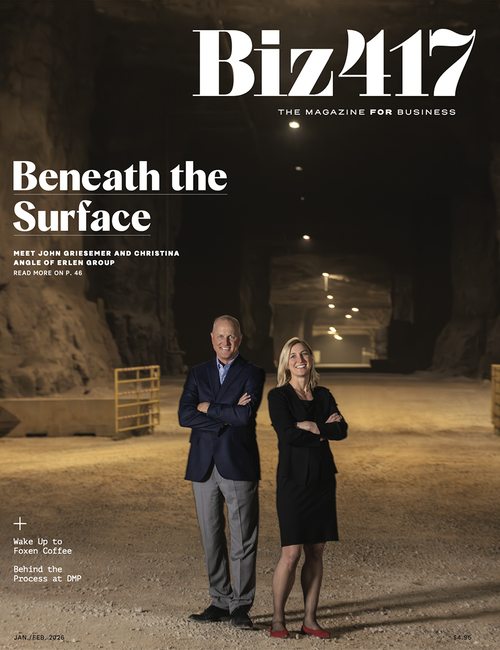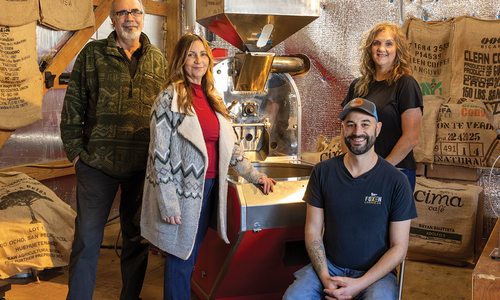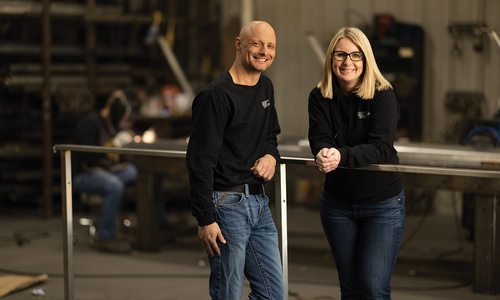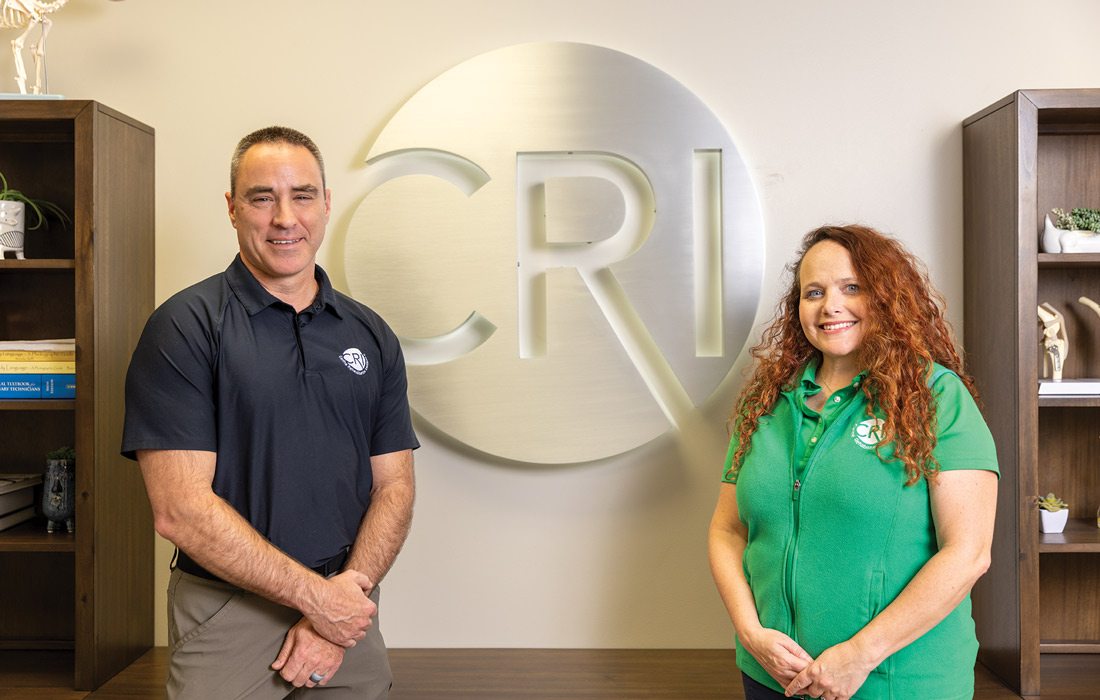
Offices
How the Canine Rehabilitation Insitute Came to Springfield, Missouri
Traditional physical rehabilitation techniques meet cutting-edge technology—and a serious passion for animals—in this highly specialized Springfield business.
by Taryn Shorr-McKee
Jul 2024

Dr. Kara Amstutz was at a veterinary convention in Las Vegas when she discovered Canine Rehabilitation Institute (CRI), a post-graduate certification program in veterinary rehabilitation and acupuncture. At the time, the company was based in Denver, Colorado, and Fort Lauderdale, Florida. So how did this highly specialized business come to Springfield?
CRI appeared in Dr. Amstutz’s world rather serendipitously, as advanced pain management had recently piqued her interest. She and husband Dwight Amstutz founded their first Springfield practice, Hometown Veterinary Hospital, nearly 10 years prior, and they were heartbroken when families had to say good-bye to a pet because of debilitating pain or immobility. In 2013, “Dr. Kara,” as clients call her, became a Certified Canine Rehabilitation Therapist through CRI.
One year later, Dr. Kara opened River Canine Rehabilitation, transitioning her practice to pet rehabilitation and pain management. She added Certified Veterinary Acupuncturist to her resume in 2019 and became a Diplomate of the American College of Veterinary Sports Medicine and Rehabilitation in 2023—one of just 65 in the United States.
When the opportunity arose to purchase Canine Rehabilitation Institute in 2022, the Amstutzes didn’t hesitate. Because the business operated between two seasonal locations, there were logistical factors with moving it to a permanent one, but Dr. Kara never considered running CRI somewhere else.
Although moving CRI to Springfield was primarily for personal reasons, it benefited the company. Dr. Kara says, “Having a home base allowed us to significantly expand our business.” Between 2022 and 2024, class offerings increased by 50%. Core certification courses include CCRT, canine rehabilitation assistant (CCRA) and veterinary acupuncture (CVAT), among others, while Canine Therapeutic Exercise and Exercise Physiology of the Working Canine are some of the continuing education courses.
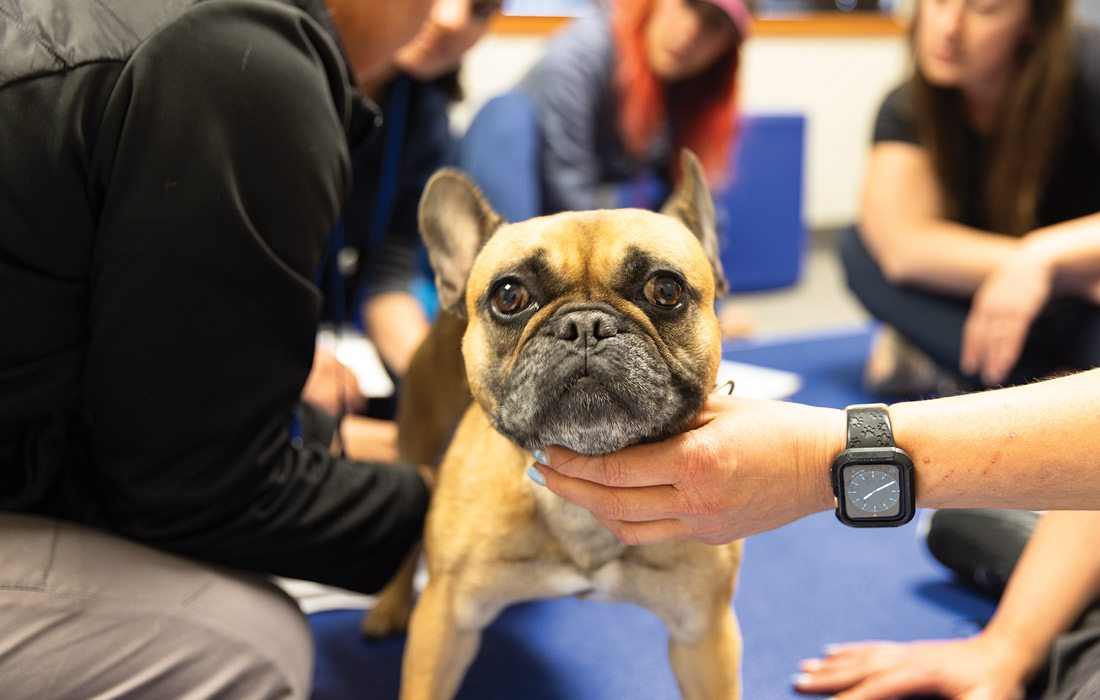
About 1,400 students, mostly veterinary professionals and physical therapists, travel to Springfield annually for four- to five-day courses offered year-round. Dozens of independent instructors and teaching assistants join them, a mixture of established veterinarians with their own practices, veterinary school professors and physical therapists. “That collaboration between vets and human physical therapists is the biggest thing that makes CRI stand out,” Dr. Kara says. Regardless of their career field or specialty, all instructors have one thing in common: they completed a CRI certification.
Everyone’s favorite staff members, “dog professors,” are local 417-area working and competition dogs. An important element of CRI programs is that students work with a variety of breeds, sizes and ages. Dr. Kara explains this emphasis on in-person learning is another major thing separating CRI from other programs. “A hands-on career requires hands-on training. [This approach] restores passion to practitioners, and in turn, hope to pet owners and health to pets,” she says. To that end, students spend over 80 hours in the classroom and must complete a 40-hour internship.
CRI students don’t have to search for internship opportunities; they can complete their 40-hour requirement onsite. Right next door, Dr. Kara opened Momentum Veterinary Sports Medicine and Rehabilitation in March 2024. The specialty veterinary practice is the only one of its kind within three hours, focused on improving pets’ quality of life through pain management and physical rehabilitation. In addition to traditional gym equipment like exercise balls and treadmills, Momentum uses highly specialized treatments and tools including cold laser therapy, therapeutic ultrasound, shockwave therapy and acupuncture. “Most of what we do here [at CRI and Momentum], we did on humans first and figured out how to modify it for animals,” says Dr. Kara.
With all the forward momentum, what’s next for Dr. Kara and CRI? A primary focus is participating in clinical research, a step toward advancing the understanding of veterinary rehabilitation worldwide. “The goal is veterinary rehab in every community.” Dr. Kara states.

